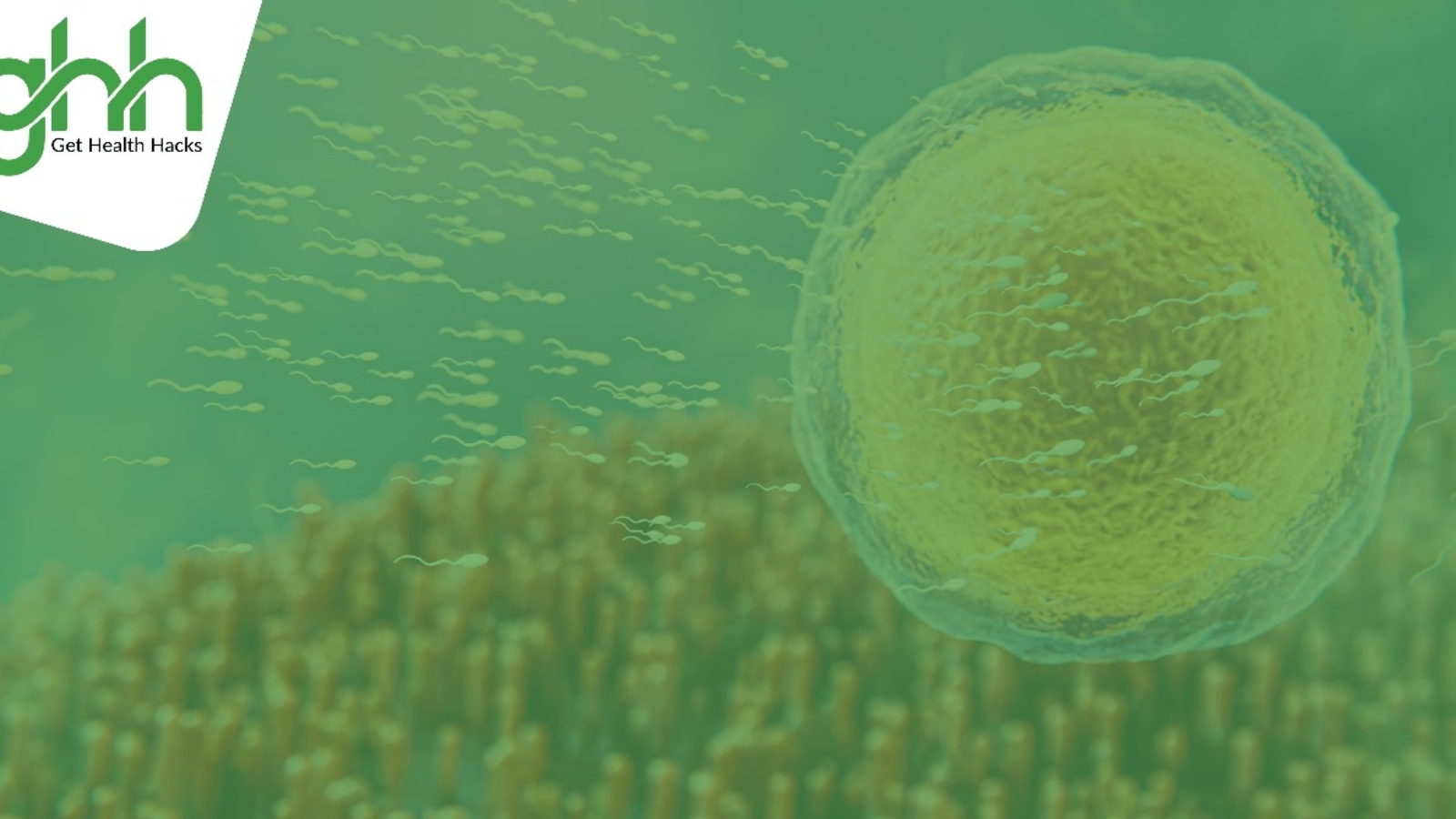You may be surprised to know that many factors can influence male fertility. One of them is antioxidants. Let’s explore the 13 best antioxidants for male fertility and explore how they can help you on your journey.
Understanding Male Infertility
What Is Male Infertility?
Male infertility refers to the inability to impregnate a female partner after a year of trying without protection. Roughly 15% of couples face this challenge.
Common causes include:
- Hormonal imbalances
- Anatomical issues
- Lifestyle choices
The Role of Sperm Health
Sperm health is crucial for successful reproduction. Changing in any of these key factors can cause infertility:
- Sperm Count: The number of sperm produced.
- Motility: How well sperm can swim.
- Morphology: The shape and structure of sperm.
The Connection Between Antioxidants and Male Fertility
What Are Antioxidants?
Antioxidants are substances that help neutralize free radicals. These unstable molecules can cause damage to cells, including sperm.
Antioxidants protect your cells against free radicals hence they play a vital role in maintaining sperm health.
How Do Antioxidants Affect Sperm Health?
The imbalance between free radicals and antioxidants can harm your sperm. Antioxidants help by:
- Protecting DNA from damage
- Boosting sperm motility
- Increasing sperm production
13 Top Antioxidants for Male Fertility
Let’s explore top antioxidants that can help you boost your reproductive health.
1. Vitamin C
- Benefits: Protects sperm from oxidative damage and improves motility.
- Sources: Citrus fruits, strawberries, bell peppers, and broccoli.
- Expert Tip: Aim for about 90 mg per day.
A glass of orange juice in the morning can help!
2. Vitamin E
- Benefits: Shields sperm membranes from oxidative stress and enhances quality.
- Sources: Nuts, seeds, spinach, and whole grains.
- Expert Tip: Snack on almonds or sunflower seeds for a tasty boost.
3. Zinc
- Benefits: Essential for testosterone production and sperm development.
- Sources: Oysters, red meat, poultry, beans, and nuts.
- Expert Tip: Having just 11 mg per day can make a difference.
4. Selenium
- Benefits: Important for sperm motility and overall reproductive health.
- Sources: Brazil nuts, fish, eggs, and whole grains.
- Expert Tip: A couple of Brazil nuts a day can meet your selenium needs.
5. Coenzyme Q10 (CoQ10)
- Benefits: Vital for energy production in sperm cells and improves motility.
- Sources: Fatty fish, meat, spinach, and whole grains.
- Expert Tip: Consider a supplement if you’re not getting enough from food—aim for 100 to 300 mg daily.
6. L-Carnitine
- Benefits: Supports sperm maturation and motility.
- Sources: Red meat, dairy products, and fish.
- Expert Tip: Talk to your doctor about the right dosage for you.
7. Glutathione
- Benefits: A powerful antioxidant that protects sperm health.
- Sources: Avocados, spinach, and asparagus.
- Expert Tip: Eat a variety of colorful fruits and veggies to boost your glutathione levels.
8. N-Acetyl Cysteine (NAC)
- Benefits: Reduces oxidative stress and improves sperm parameters.
- Sources: Poultry, eggs, and dairy products.
- Expert Tip: Typical doses range from 600 to 1,800 mg daily
9. Astaxanthin
- Benefits: Enhances sperm motility and protects against oxidative stress.
- Sources: Salmon, shrimp, and microalgae.
- Expert Tip: This one is often found in supplement form. A daily dose of 4 to 12 mg is enough for you.
10. Curcumin
- Benefits: Its anti-inflammatory properties can positively affect sperm health.
- Sources: Turmeric spice and curry powder.
- Expert Tip: Experts recommend 1,500 mg of curcumin extract daily.
Adding turmeric to your meals can be a tasty way to incorporate it into your diet.
11. Lycopene
- Benefits: Known for its potential to improve sperm quality and motility.
- Sources: Tomatoes, watermelon, and pink grapefruit.
- Expert Tip: Cooked tomatoes increase lycopene availability.
Enjoy a hearty tomato sauce!
12. Omega-3 Fatty Acids
- Benefits: Supports sperm structure and function, enhancing overall fertility.
- Sources: Fatty fish like salmon, walnuts, and flaxseeds.
- Expert Tip: Have at least two servings of fatty fish per week for optimal benefits.
13. Quercetin
- Benefits: It may improve sperm quality and reduce oxidative stress.
- Sources: Apples, onions, and berries.
- Expert Tip: Make a salad of colorful fruits and vegetables
Best Times to Incorporate Antioxidants in Your Diet
- Morning Boost: Starting your day with antioxidant-rich foods can help combat oxidative stress accumulated overnight.
Consider adding fruits like berries or citrus to your breakfast.
- Midday Nutrition: Incorporating antioxidants during lunch can provide sustained energy and protect against oxidative damage throughout the day.
Salads with leafy greens, tomatoes, and nuts are excellent choices.
- Afternoon Snack: A healthy snack, such as a handful of nuts or a smoothie with spinach and fruits, can boost your antioxidant intake and keep your energy levels stable.
- Evening Repair: Consuming antioxidant-rich foods at dinner can help repair cellular damage from the day.
Foods like dark chocolate, red wine (in moderation), and colorful vegetables can be beneficial.
Recommended Dosages of Key Antioxidants
- Vitamin C: Aim for about 90 mg per day for men and 75 mg for women. This can be achieved through a few servings of fruits and vegetables.
- Vitamin E: The recommended daily allowance is 15 mg. A handful of nuts or seeds can help meet this requirement.
- Zinc: The daily recommended intake is 11 mg for men and 8 mg for women. Foods like oysters, meat, and legumes are good sources.
- Selenium: Aim for 55 mcg per day. A couple of Brazil nuts can provide more than enough selenium.
- Coenzyme Q10: Typical supplementation ranges from 100 to 300 mg daily, depending on individual needs.
- L-Carnitine: Consult with a healthcare provider for appropriate dosages, as they can vary based on individual health conditions.
Combinations To Avoid
While antioxidants are generally safe, certain combinations may not be beneficial or could interfere with each other:
- High Doses of Vitamin E and Vitamin C: Some studies suggest that taking high doses of these vitamins together may reduce their effectiveness.
- Beta-carotene and Vitamin A: High doses of beta-carotene supplements can be harmful, especially for smokers, as they may increase the risk of lung cancer.
- Selenium and Vitamin E: While both are beneficial, high doses of selenium can lead to toxicity, especially when combined with vitamin E supplements.
- Antioxidants during Cancer Treatment: Some studies indicate that taking antioxidant supplements during chemotherapy may interfere with treatment effectiveness.
Always consult with a healthcare provider before starting any supplements during cancer treatment
Lifestyle Influence On Male Fertility
- Diet and Nutrition
A balanced diet rich in antioxidants is needed for maintaining optimal sperm health.
Here’s how to enhance your diet:
- Colorful Plate: Aim for a variety of colors in your meals to maximize antioxidant intake.
- Focus on Whole Foods: Prioritize whole grains, lean proteins, and healthy fats.
- Exercise and Physical Activity
Exercise helps maintain a healthy weight, reduces stress, and improves hormone levels. In addition, regular physical can positively impact male fertility.
Here’s what to consider:
- Routine: Aim for at least 150 minutes of moderate-intensity exercise each week.
Environmental Factors Affecting Male Reproductive Health
Your environment plays a significant role in your reproductive health. Various factors can negatively impact sperm quality and overall fertility.
Here are some key environmental influences to consider:
- Pollution: Exposure to air and water pollutants can lead to oxidative stress, affecting sperm health.
- Chemicals: Pesticides, heavy metals, and industrial chemicals can disrupt hormonal balance and impair fertility.
- Radiation: Prolonged radiation exposure, including from electronic devices, may harm sperm production and quality.
- Heat: High temperatures, such as those from hot baths or tight clothing, can negatively affect sperm production.
Precautions To Take For Better Reproductive Health
To protect your reproductive health, consider these precautions:
- Limit Exposure: Reduce contact with harmful chemicals and pollutants. Use natural cleaning products and avoid processed foods.
- Stay Cool: Wear loose-fitting clothing and avoid prolonged exposure to heat sources.
- Mind Your Diet: Focus on a diet rich in antioxidants to combat oxidative stress from environmental factors.
- Regular Check-ups: Consult with a healthcare professional for regular assessments of your reproductive health.
Natural Foods And Remedies To Support Male Fertility
In addition to these antioxidants, certain natural foods and remedies can enhance your fertility. Consider adding these into your diet for added benefits:
- Fruits and Vegetables: Aim for a colorful variety to ensure a broad spectrum of nutrients.
- Whole Grains: Brown rice, quinoa, and oats provide essential vitamins and minerals.
- Healthy Fats: Include sources of omega-3 fatty acids, such as fatty fish, walnuts, and flaxseeds.
- Herbs and Spices: Consider adding garlic, ginger, and turmeric for their anti-inflammatory properties.
Try these simple Recipes:
| Recipe Name | Ingredients | Benefits |
| Antioxidant Smoothie | Spinach, banana, berries, almond milk | Packed with vitamins and minerals for sperm health. |
| Quinoa Salad | Quinoa, cherry tomatoes, cucumber, olive oil | Rich in protein and healthy fats. |
| Turmeric Tea | Turmeric, ginger, honey, lemon | Anti-inflammatory and boosts overall health. |
Final Words
With dedication and the right approach, you can take proactive steps toward the family you desire. Each small step brings you closer to fulfilling that dream.
Nourish your body with wholesome, vitamin-rich foods and make lifestyle tweaks to support your goals. Little changes add up, enhancing sperm health and your chances of conceiving. Talk to your doctor before starting any antioxidant supplements. On this journey – your path to parenthood is promising.

